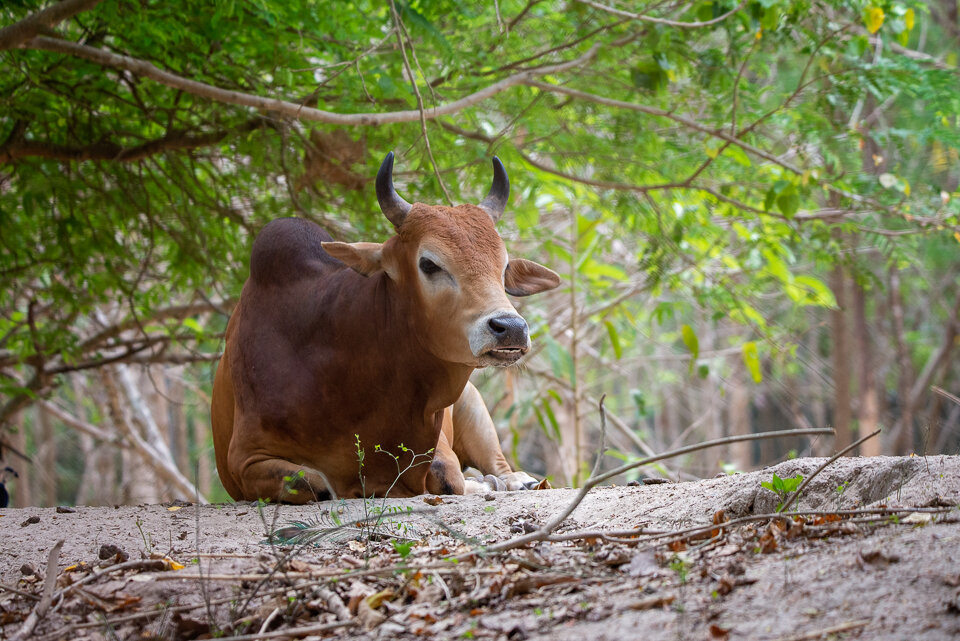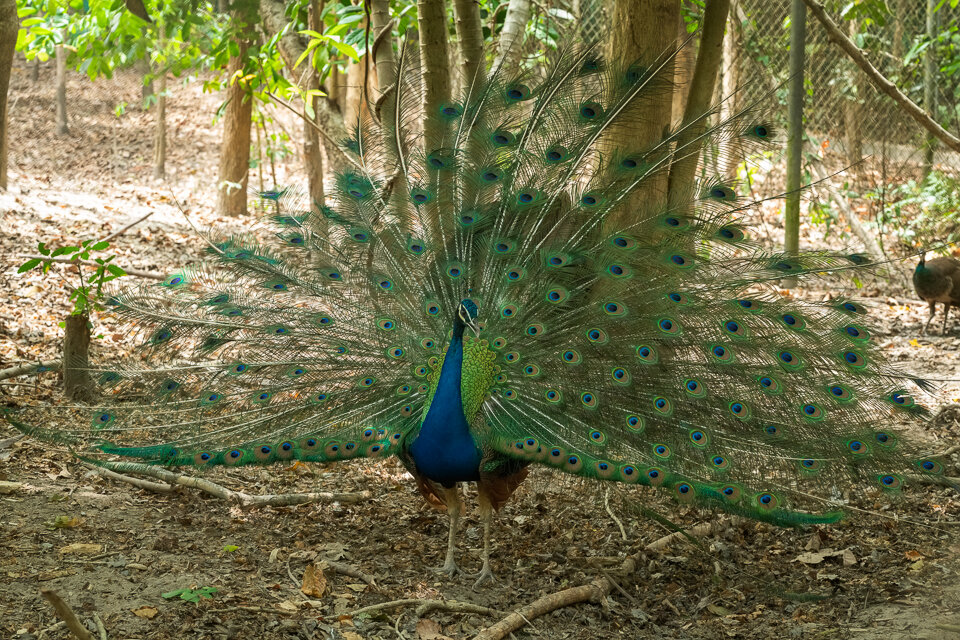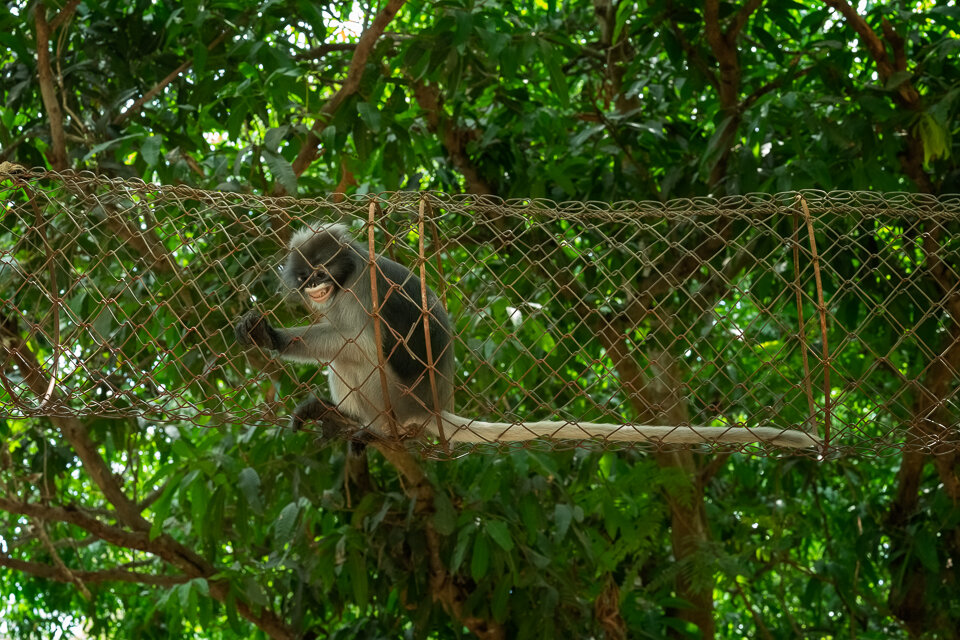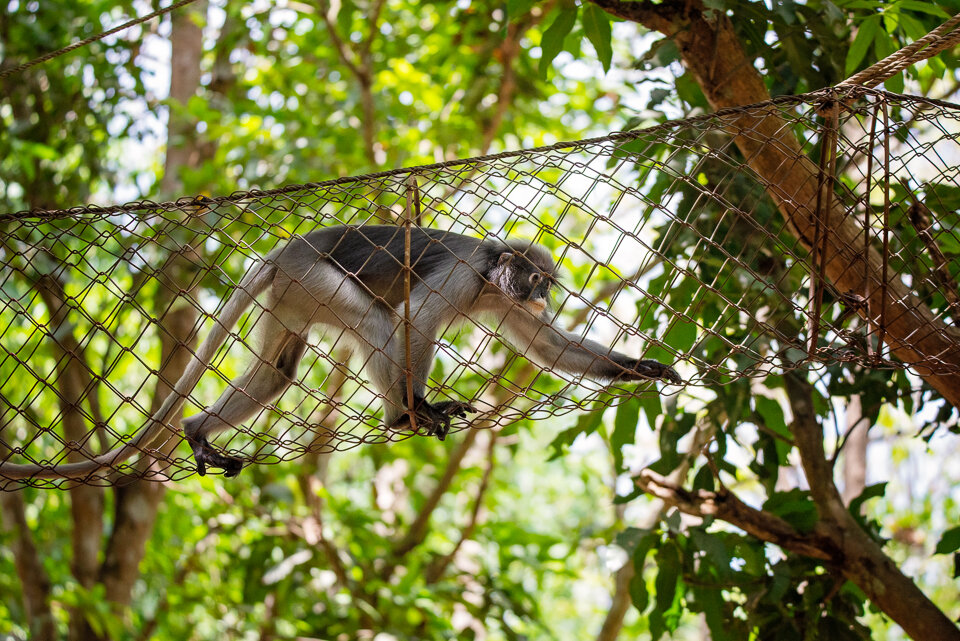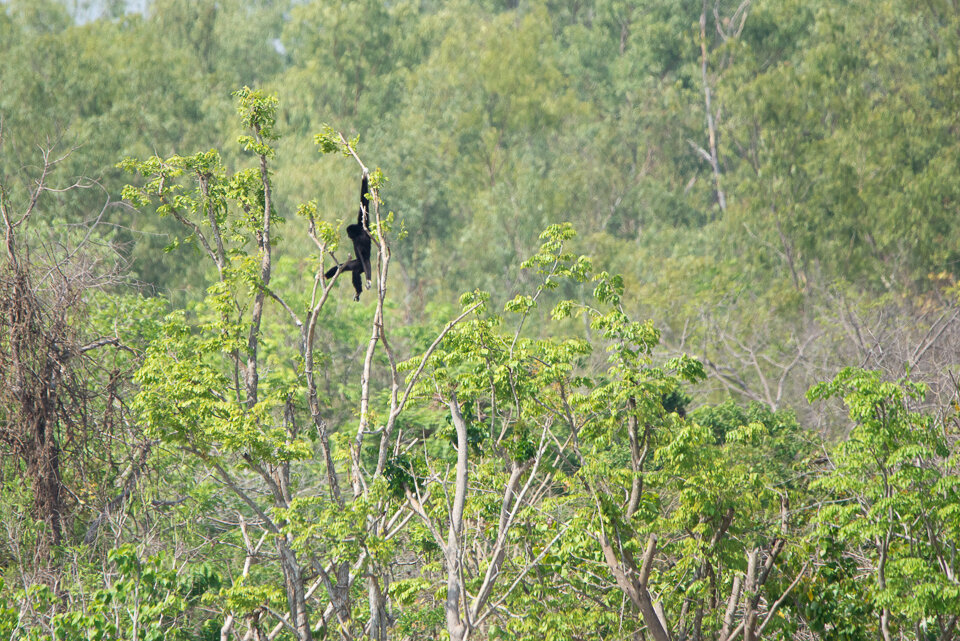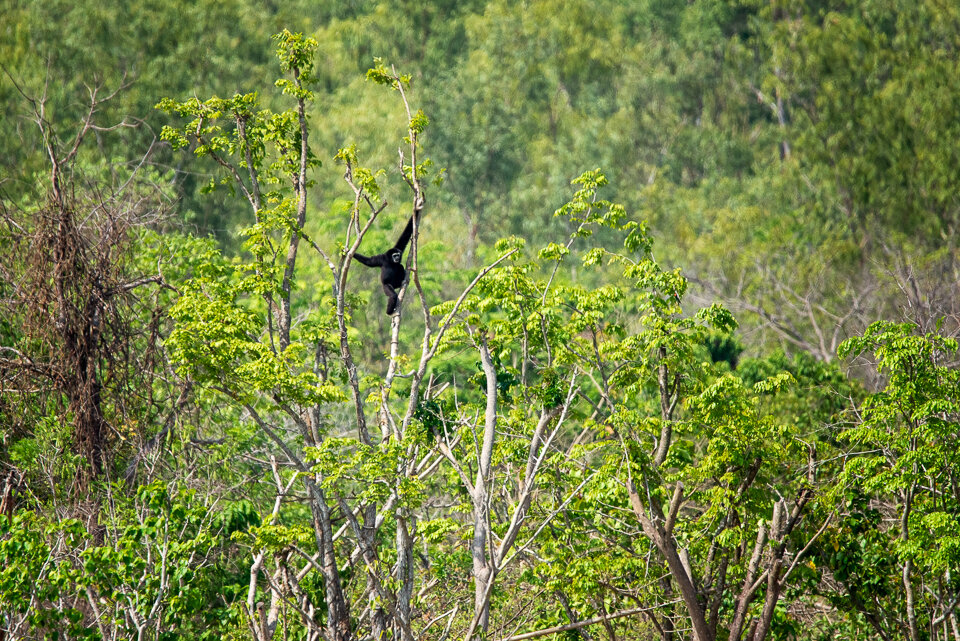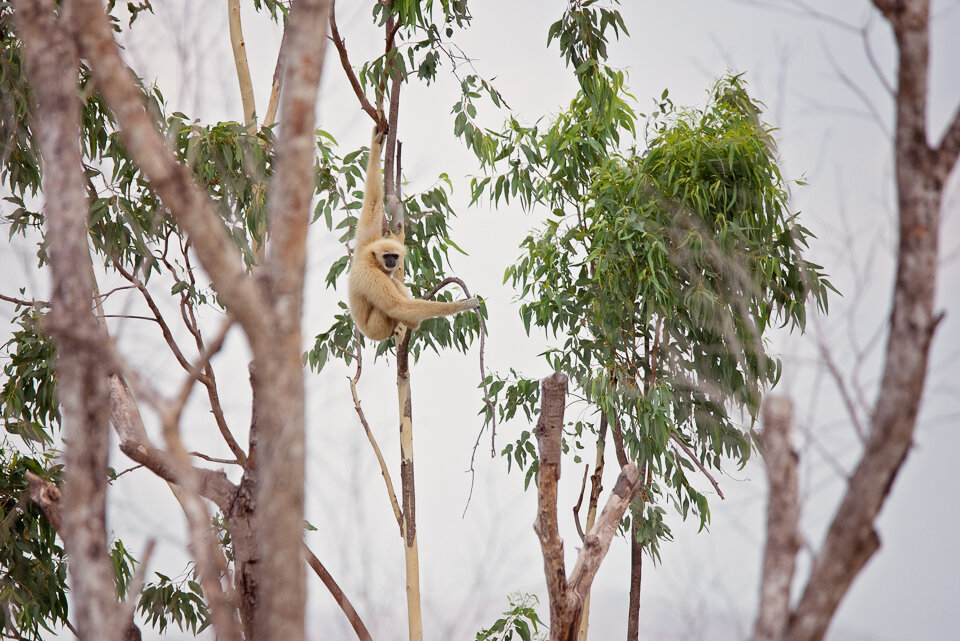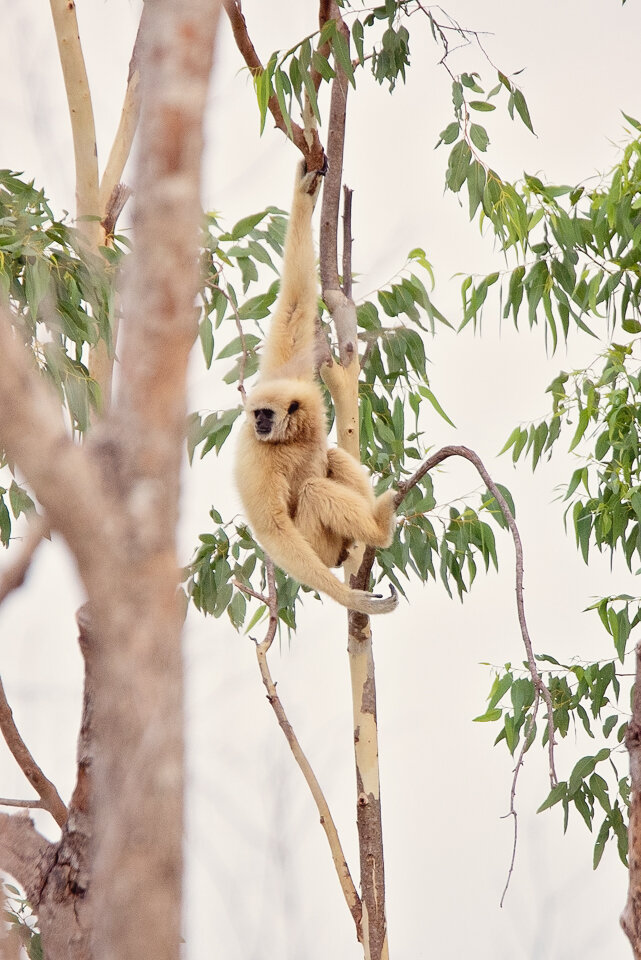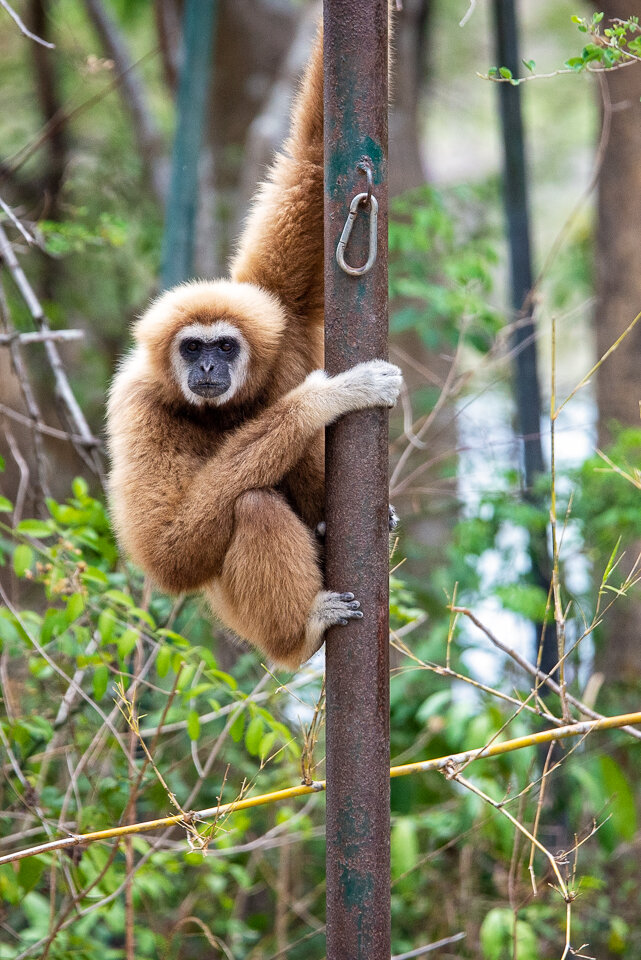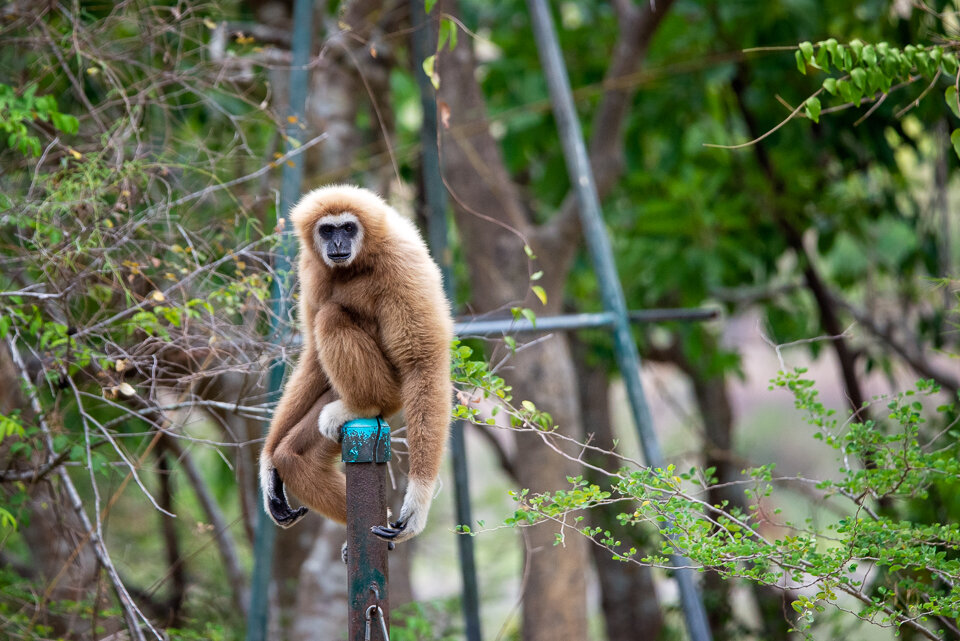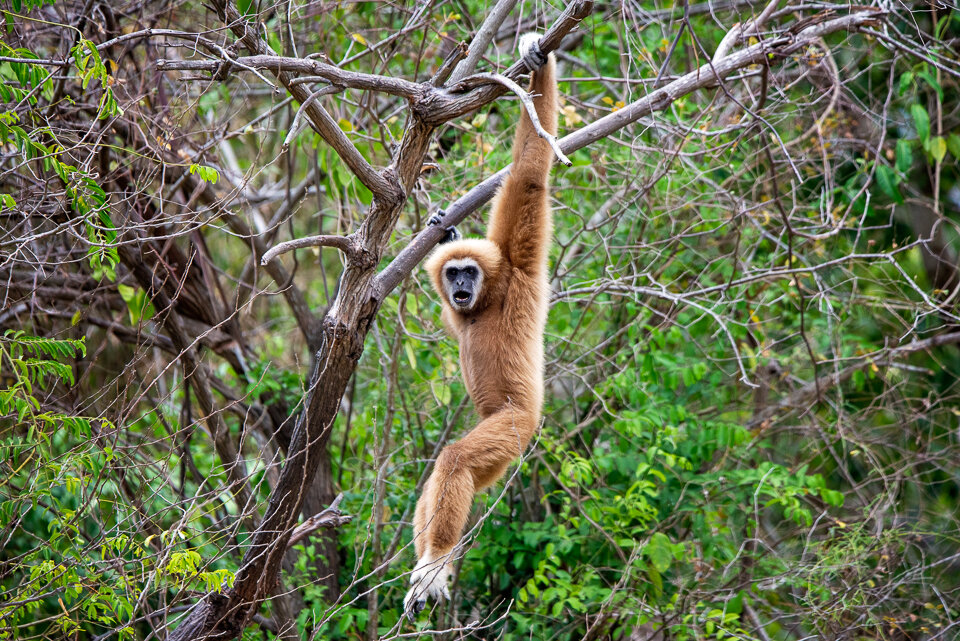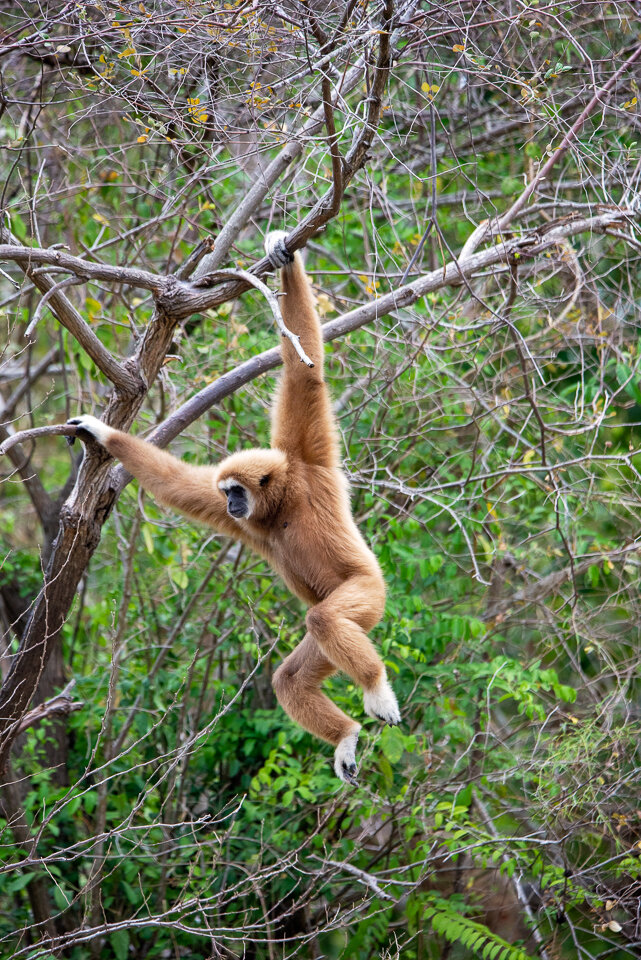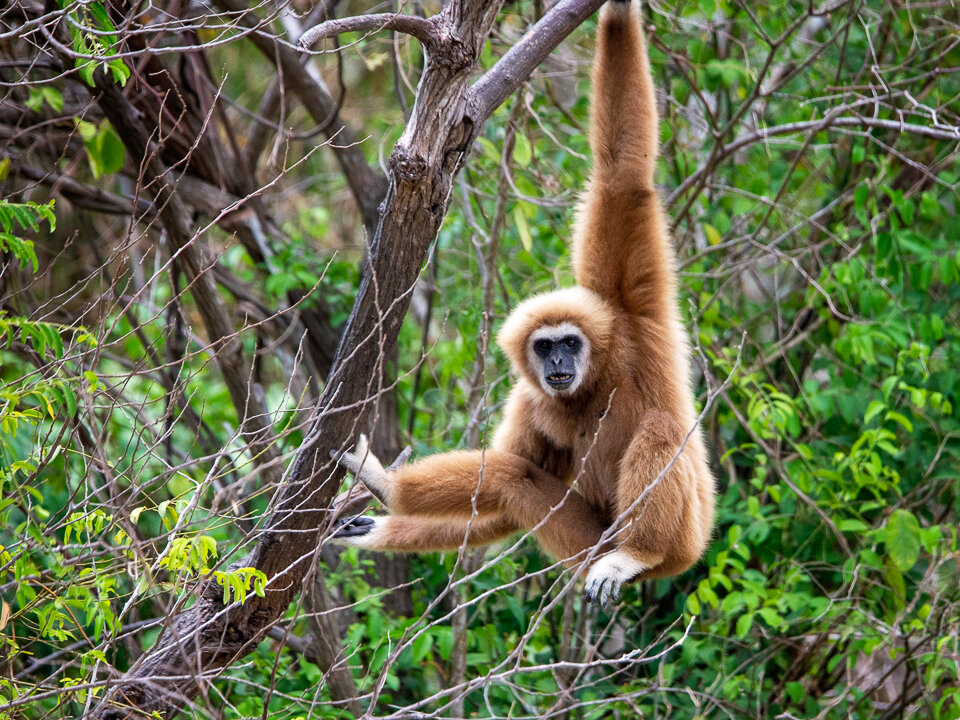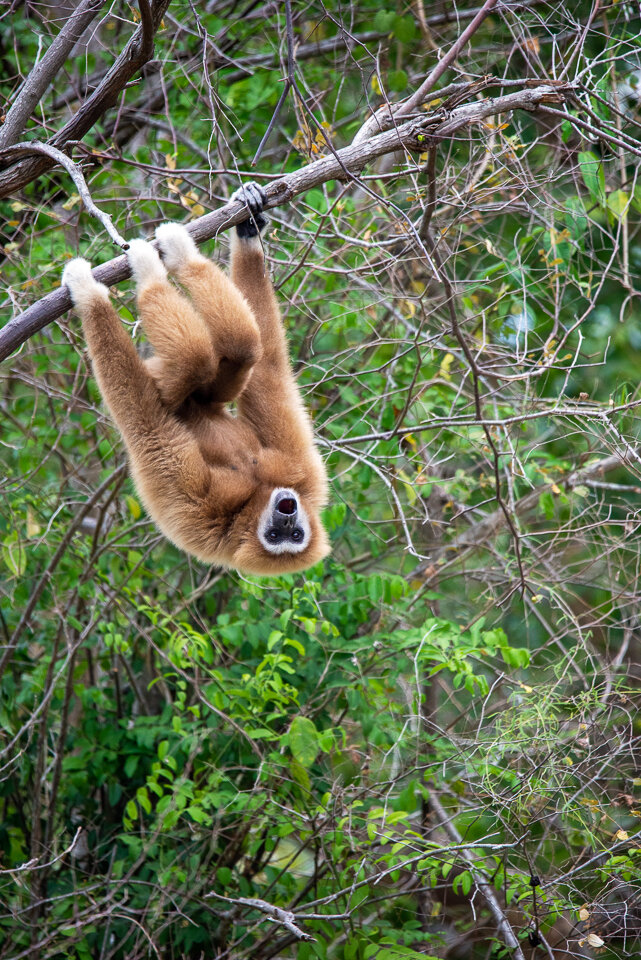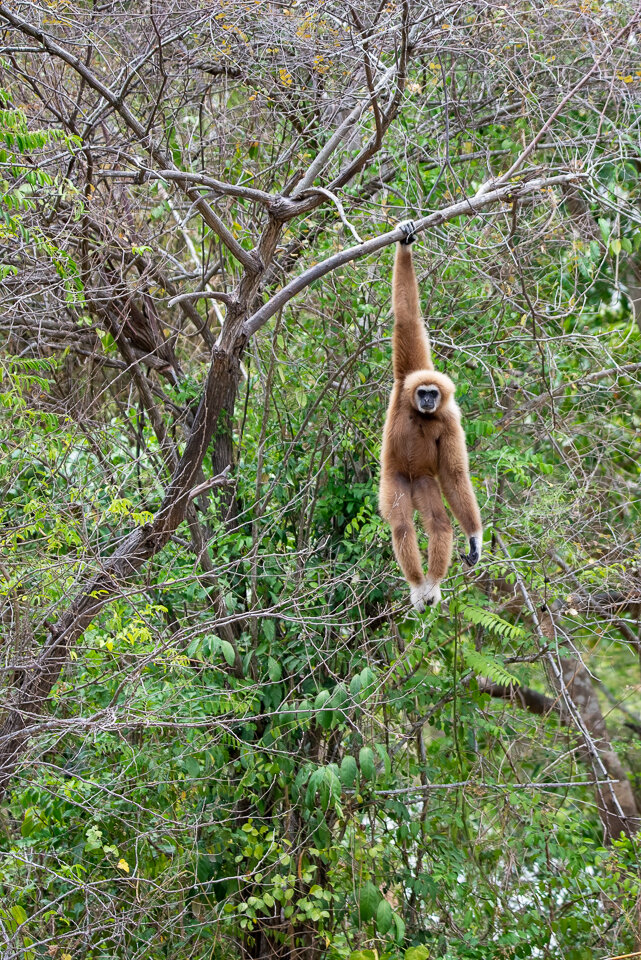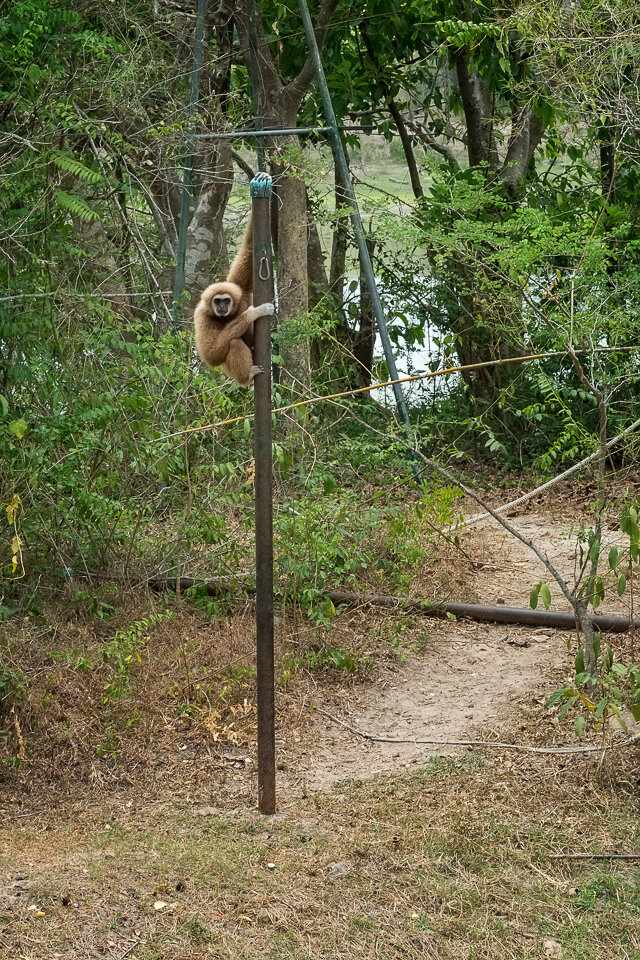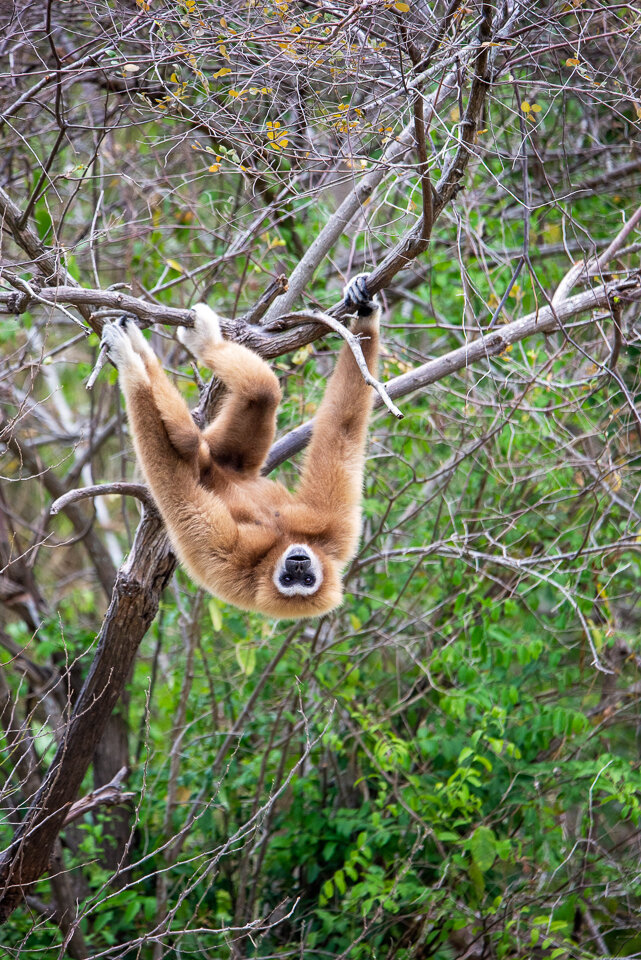Since its inception the WFFT Wildlife Rescue Centre has given shelter to 1000’s of wild animals. Many of these animals are rehabilitated and released back to the wild. Those that cannot be released are provided with shelter for the rest of their lives.
Langurs on the pictures below are in the tunnels connecting big enclosures.
Od początku swjego istnienia WFFT Wildlife Rescue Center zapewniło schronienie tysiącom dzikich zwierząt. Wiele z tych zwierząt jest rehabilitowanych i wypuszczanych na wolność. Te, których nie można wypuścić, mają zapewnione schronienie do końca życia.
Lutungi na zdjeciach poniżej są w łącznikach pomiędzy wybiegami .
At the rescue center there are at the moment 6 species of gibbon, 5 species of macaque, lorises, langurs, 2 species of bear, small wild cats, various civet species, reptiles, otters, and birds. WWT says: “All the animals have been rescued from poor living conditions, saved from the illegal wildlife trade, the pet industry, the tourism and entertainment industry, or directly from the wild, where they may have been victims of road traffic accidents, dog attacks or other human caused accidents. Where feasible we try to provide the rescued animals within our care an environment as close to “nature” as possible. Our overall objective will always be to rehabilitate and release these animals back to the wild.”
W sanktuarium znajduje się obecnie 6 gatunków gibona, 5 gatunków makaków, lorisy, lutungi, 2 gatunki niedźwiedzi, małe dzikie koty, różne gatunki cywetów, gady, wydry i ptaki. WWT mówi: „Wszystkie zwierzęta zostały uratowane ze złych warunków, uratowane przed nielegalnym handlem dziką fauną, przemysłem zoologicznym, turystycznym i rozrywkowym lub zabrane ze środowiska naturalnego, gdzie mogły być ofiarami wypadków drogowych, ataków psów lub inne wypadków spowodowanych przez człowieka. Tam, gdzie jest to wykonalne, staramy się zapewnić uratowanym zwierzętom pod naszą opieką środowisko możliwie najbliższe naturze. Naszym głównym celem zawsze będzie jednak rehabilitacja i wypuszczenie tych zwierząt z powrotem na wolność ”.

